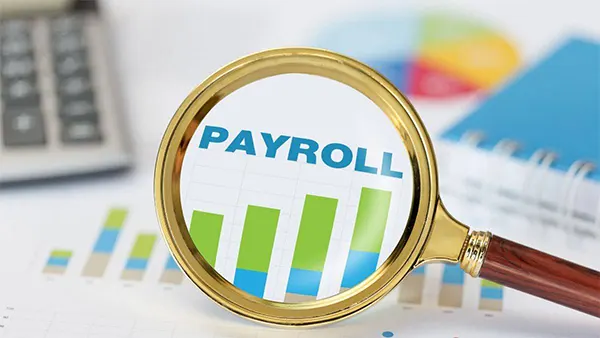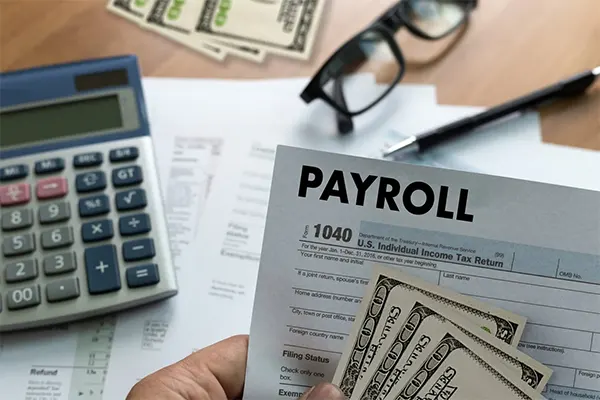Payroll is a process followed by the company in order to pay its employees. It includes tax filing, deductions, and other such factors.

Have you ever asked yourself what is payroll? The global payroll market was valued at $11.04 billion in 2024 and is expected to reach $17.59 billion by 2032. Even after having such market value, people still don’t know what it is and how it works.
Payroll is quite crucial for every workplace; it isn’t limited to businesses but is involved everywhere. There are legal consequences as well for employers if they fail to meet all the requirements.
So, keeping these things in mind, this article will give you a clear and in-depth understanding of what is payroll and everything important you need to know about it.
What is Payroll in Simple Terms?
Payroll is a compensation that any business or firm is liable to pay to its employees during a certain period. This includes wages, bonuses, and deductions. It’s an ongoing administrative process and involves recording employee work hours, calculating gross pay, and withholding taxes.
Once everything has been determined, the final net amount is paid. While this is being done, a proper financial record is maintained, which is mandatory for legal compliance. Therefore, it’s essential for companies to file taxes on time and contribute to the betterment of the country and its development.
This is not an easy process and has a lot of complexities; given this nature, businesses often switch to payroll processing systems to streamline operations.
What Does it Mean to Work in the Payroll Department?
Many might be curious to know what payroll as a job is. This is a department that consists of several people who are responsible for ensuring that all the working employees are paid on time and that proper records are maintained. This division is present in every organization.
Professionals can be a part of a company’s payroll department and can also be outsourced via cheap payroll services. These individuals are responsible for timekeeping records, calculating pay based on hourly or salaried rates, applying taxes, and generating payslips.
Payroll professionals have to keep a close watch on laws and regulations to see if any changes are being made and have to operate accordingly. It’s a detail-oriented role and requires both technical knowledge and integrity.
Because if any mistake takes place, like an incorrect tax deduction or late payment, it can create problems for the firm. Payroll specialists work in a team that helps ensure accurate reporting in a company’s financial records.
What’s the Difference Between Payroll and Paycheck?

A lot of people mix up the terms payroll and paycheck, and honestly, it makes sense: they’re closely related, but they aren’t the same thing.
The definition of paycheck says it is the actual money that you get paid for your work. It could be a direct deposit into your bank account or a physical check. Payroll is the full process of tracking how many hours you’ve worked, adding any overtime, subtracting taxes, insurance, and other deductions, and making sure you get paid the right amount on time.
For people who are on a salary, it also involves keeping track of other considerations like paid holidays and vacation time and making sure paydays stay consistent.
For more clarity, take a look at the tabular comparison created below:
| Attributes | Payroll | Paycheck |
| Definition | In simple terms, payroll is the process of paying employees for their work pay which includes the wages, bonuses, and more. | On the other hand, a paycheck is the physical or digital record of the salary made out to an employee. |
| Purpose | To meet the tax implications, distribute the employee payment in a timely manner and fulfil other obligations. | It showcases the employee’s total earnings and deductions made from it. |
| Scope | Includes managing all the activities that involve managing timely salaries, deductions, tax, and other deductions as stated by the organizations. | Contains the various components of the employer’s earnings that include net pay amount, deductions, allowances, bonuses and more. |
| Time Period | Most probably occurs on a regular basis (weekly, monthly or annually) | Given at the end of every pay period. |
Who Pays Payroll and How it Works?
So, who pays payroll? The answer is simple: it’s the employer who is responsible for it. Businesses issue payments and deduct taxes. These charges are further paid to government agencies. It doesn’t matter if the process is done via in-house or outsourced service.
Given the size of any operation, firms will either perform such operations on their own or hire budget-friendly or cheap payroll services to stay compliant with the rules. A big company might have an entire payroll department that may oversee operations, often supported by advanced payroll software systems.
However, at the end of the day, the size of the firm doesn’t matter, as employees will be paid regardless, and they are strictly accountable for it. Without accurate payroll, a business is exposed to financial risks and legal penalties.
DID YOU KNOW?
The payroll system has been around for centuries, with the earliest being recorded in 700 BC!
The Bigger Picture of Payroll Accounting

Payroll accounting plays a critical role in financial planning and reporting. All payroll transactions are recorded in the company’s financial books, and this goes beyond salary and wages as it also includes taxes, bonuses, and benefit contributions.
Since businesses have a deep understanding of what payroll is, they are able to manage labor costs effectively and make a budget with great accuracy that meets all the needs. While many might not understand this, even the slightest mistake in payroll accounting can cause big trouble at the time of audits or tax season that why our tax outsourcing comes as a saver
This is because payroll is one of the major expenses, so it can directly impact the profitability of any corporation. This is also the reason why organizations are often looking for robust payroll processing tools that automate calculations and track changes in labor law.
Evolving Technology and the Future of Payroll
Payroll systems have been evolving rapidly thanks to digital tools and automation. Companies rely heavily on it because of the benefits they are getting, which can be seen in the infographic below.
Traditional methods are time-consuming and not to mention they usually include several errors, but software programs are designed to handle complex calculations, generate tax forms, and can even be integrated with HR systems.
Understanding what is payroll now means understanding the tech that drives it. Nowadays, cloud-based solutions have become an essential part of startups and small businesses because of features like direct deposit, automated tax filing, and employee self-service portals.
These solutions are known for reducing human errors and improving overall efficiency. Companies are no longer dependent on pen-and-paper ledgers; they now leverage real-time tracking, alerts, and smart analytics.
These systems are beyond making timely payments to employees, they’re about transforming how compensation is managed, tracked, and optimized in real-time.
Final Words
Understanding what is payroll is crucial for every organization or sector with working staff. It’s not just a simple transaction, it’s a sophisticated system that connects compensation, compliance, and company culture.
Whether you’re exploring payroll as a career or just trying to make sense of your paycheck, knowing the ins and outs of the process gives you a powerful advantage. If you are a business owner and still relying on old methods, it’s finally time to change and integrate modern-day solutions. you can also visit your Self Assessment Tax Return.

